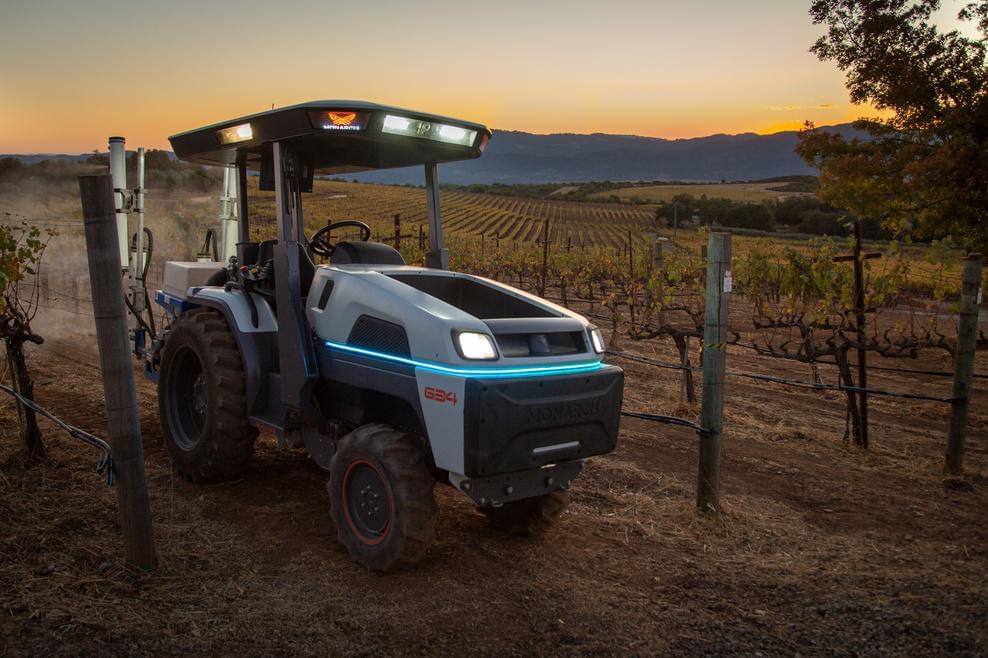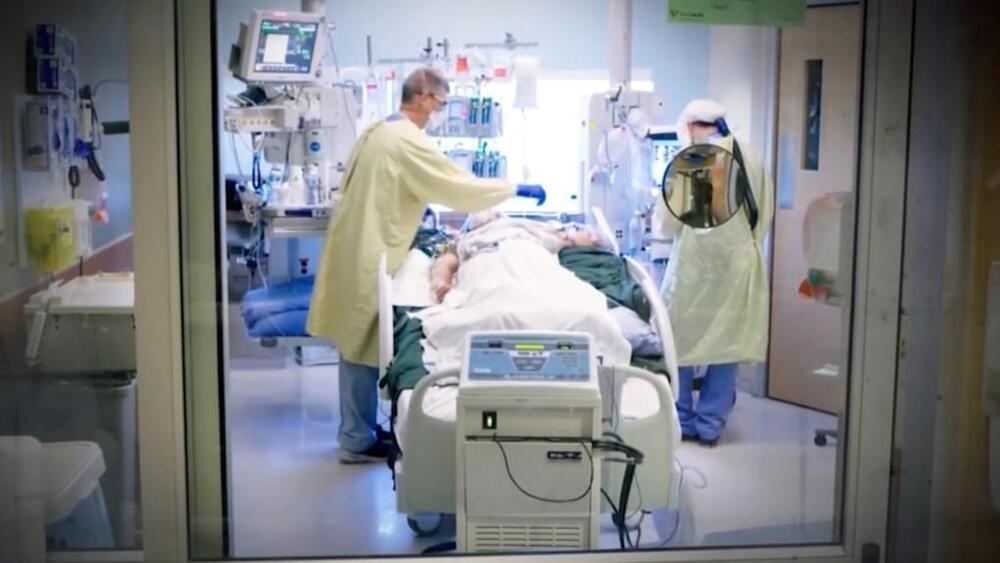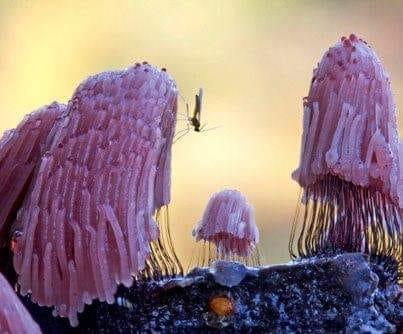Monarch Tractor is leveraging technology more commonly associated with battery-powered Teslas and autonomous Waymo vans for robotic farm tractors.



I think this might be the answer to the question we’ve all been debating here lately. Provided it ACTUALLY happens, and that it includes others (like Jeff Bezos), and that it happens within a transparent, focused, well structured and effective framework.
It’s not the end all be all to wealth inequity, but it IS a good start and could really help us avoid another tribal political dust up and focus on a worthy, positive, and equitable posthuman (or whatever it is that make… See more.
The billionaire Elon Musk said he’d sell Tesla stock and donate the proceeds if the UN could prove that just a tiny percentage of his wealth could save tens of millions of lives.
Musk was responding to comments by David Beasley, the director of the UN’s World Food Programme, who told CNN’s “Connect the World” last week that a $6 billion donation from billionaires such as Musk and Jeff Bezos could help 42 million people who he said were “literally going to die if we don’t reach them.”
Musk is the world’s richest man and recently became the first person in the Bloomberg Billionaires Index ever to have an estimated net worth north of $300 billion.

It’s the dog days of summer. You bite down on a plump, chilled orange. Citrus juice explodes in your mouth in a refreshing, tingling burst. Ahh.
And congratulations—you’ve just been vaccinated for the latest virus.
That’s one of the goals of molecular farming, a vision to have plants synthesize medications and vaccines. Using genetic engineering and synthetic biology, scientists can introduce brand new biochemical pathways into plant cells—or even whole plants—essentially turning them into single-use bioreactors.

A few days ago, United Nations World Food Program (WFP) director David Beasley told CNN that a small group of ultra-wealthy individuals such as Tesla and SpaceX CEO Elon Musk could help solve world hunger with just a fraction of their net worth. Musk’s net worth currently stands at $311 billion thanks to a recent rally in TSLA stock, effectively making the CEO the world’s wealthiest individual today.
While speaking at CNN’s Connect the World with Becky Anderson, Beasley called for billionaires to “step up now, on a one-time basis.” He also noted that even just 2% of Musk’s current net worth could solve world hunger. This translates to roughly about $6 billion. “$6 billion to help 42 million people that are literally going to die if we don’t reach them. It’s not complicated,” the UN WFP director said.
Musk has now responded to Beasley’s statements. While responding to a post on Twitter which highlighted that the UN World Food Program actually raised $8.4 billion in 2,020 Musk noted that if the WFP could explain exactly how $6 billion would solve world hunger, then he would be more than willing to sell some TSLA stock right now. This is a key point as most of Musk’s net worth is tied to his majority stake in Tesla. This means that for Musk to have $6 billion in cash, he’d have to sell TSLA stock, which would then be taxed.


Barely-alive creatures, such as the slime mold pictured, are able to produce “memories” — they just store them in their physical surroundings rather than a brain. “A slime mould is not a fungus or mould, but is in fact a protist, which is really the odds and ends of the natural world that don’t fit in with the rest of our taxonomic grouping system,” said PhD student Christopher Reid who led the study.
Is it possible to know where you’ve been when you don’t have a brain? Depending on your definition of “know,” the answer may be yes. Researchers have shown that the slime mold, an organism without anything that resembles a nervous system (or, for that matter, individual cells), is capable of impressive feats of navigation. It can even link food sources in optimally spaced networks. Now, researchers have shown it’s capable of filling its environment with indications of where it has already searched for food, allowing it to “remember” its past efforts and focus its attention on routes it hasn’t explored.

Circa 2019 😃
“SolarStratos has an opportunity to push the limits of what we think is humanly possible and prove that renewable energy has the capacity to power our lives while preserving our planet. We are fortunate to energize SolarStratos with SunPower’s industry-leading solar technology and look forward to further showcasing the value of innovative and reliable solar solutions for the world to see.”
The company is also changing the way the whole world thinks about renewable energy…at least, that is their goal. SunPower doesn’t just want to power buildings and farms. They want to use their durable and efficient solar panels for all the types of applications available. They believe that anything that can and needs to be powered, should be powered by natural sources, like the sun.
SunPower has a pioneering legacy of powering unique solar projects. Their high-efficiency solar cells are the driving power for many amazing vehicles. In addition to now supporting the airplane SolarStratos, the company has previously supported the following projects:
Anders Sandberg, University of Oxford.
One of the deepest realizations of the scientific understanding of the world that emerged in the 18th and 19th century is that the world is changing, that it has been radically different in the past, that it can be radically different in the future, and that such changes could spell the end of humanity as we know it. An added twist arrived in the 20th century: we could ourselves be the cause of our demise. In the late 20th century an interdisciplinary field studying global catastrophic and existential risks emerged, driven by philosophical concern about the moral weight of such risks and the realization that many such risks show important commonalities that may allow us as a species to mitigate them. For example, much of the total harm from nuclear wars, supervolcanic eruptions, meteor impacts and some biological risks comes from global agricultural collapse. This talk is going to be an overview of the world of low-probability, high-impact risks and their overlap with questions of complexity in the systems generating or responding to them. Understanding their complex dynamics may be a way of mitigating them and ensuring a happier future.
Follow us on social media:
https://twitter.com/sfiscience.
https://instagram.com/sfiscience.
https://facebook.com/santafeinstitute.
https://facebook.com/groups/santafeinstitute.
https://linkedin.com/company/santafeinstitute.
https://complexity.simplecast.com.
https://aliencrashsite.org
Growing veggies on a thin film that allows nutrients and water to pass through while blocking viruses and bacteria.
[Skip Intro] 0:46
Watch more full episodes of Japan’s Top Inventions on NHK WORLD-JAPAN!
https://www3.nhk.or.jp/nhkworld/en/ondemand/program/video/to…-jti034-hp.
More quality content available on NHK WORLD-JAPAN!
https://www3.nhk.or.jp/nhkworld/en/ondemand/video/?cid=wohk-yt-2108-jti034-hp.
A Japanese farming technique using film shows potential for crop cultivation in arid regions and areas affected by soil degradation.

Ron Hetrick, a labor economist at EMSI and one of the report’s authors, said that as a whole the industry is not yet able to bring robotics in at a meaningful level. But future restaurant business models will continue to evolve as labor challenges remain. He expects business models could change so that the amount of service customers need drops.
“You will probably lose out on the amount of restaurants that you can go sit in,” Hetrick said.
Miso’s Bell said that software engineers are always in high demand, but the company is facing “normal challenges” in terms of worker availability. The current supply chain crunch is more of an immediate concern.